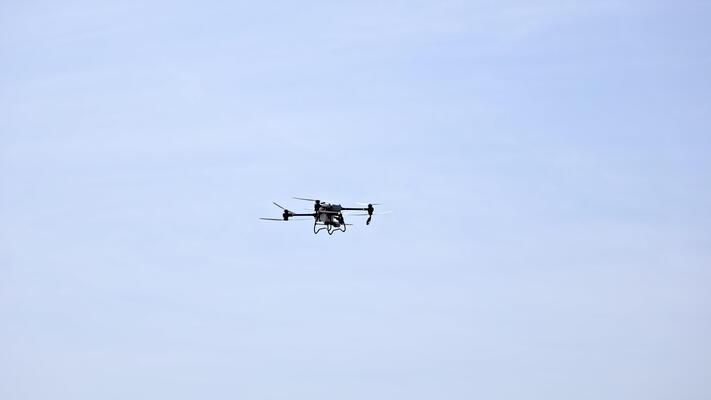Tensions over alleged drone flights over Northern Kosovo

Kosovo’s authorities reported suspected drone flights from Serbia over the north of the country, but NATO’s Kosovo Force (KFOR) contradicted these claims stating it has not identified any airspace violations that would threaten security.
Why is this important: The differing statements from Pristina and KFOR underline a growing gap between Kosovo’s government and its international partners, including KFOR, raising questions about coordination and trust. Prime Minister Albin Kurti’s government has frequently expressed frustration with what it sees as insufficient action from KFOR to deter Serbian provocations, while Kosovo’s international partners have expressed growing irritation with Kurti and his attitude vis-à-vis the dialogue with Serbia and the Serb community in Kosovo.
Context: Gazmend Hoxha, Director General of the Kosovo Police, confirmed the incidents but refrained from specifying the type of drones.
“Recently, we have had drone flights that we suspect are coming from the territory of Serbia in the northern part of Kosovo. The police are in contact with KFOR, we are monitoring and seeing what can be done.”
He reassured citizens that the situation does not pose a direct risk to public safety.
KFOR, however, offered a different assessment, emphasizing its monitoring role and authority over Kosovo’s airspace:
“We have not identified drone violations that could threaten security in Kosovo. The KFOR Commander retains authority over Kosovo’s airspace, in line with UN Security Council Resolution 1244 (1999). KFOR regularly monitors the airspace with all available means and remains in close contact with Kosovo’s security institutions and the Serbian Armed Forces.”
Growing friction: KFOR’s latest statement underscores a widening rift with the Kurti government. While Prime Minister Albin Kurti has pressed for a tougher, more assertive stance toward Serbia, KFOR remains committed to de-escalation and careful coordination. This gap has widened over the past few years, as Kurti’s government has increasingly clashed head-to-head with its Western partners.
The United States, citing concerns over “tensions and instability,” has indefinitely suspended its Strategic Dialogue with Kosovo — a move seen as a significant diplomatic setback for Pristina. Meanwhile, the European Union continues to uphold the sanctions it imposed in 2023 over Kosovo’s handling of ethnic tensions in the Serb-majority north, easing only some measures in recent months but keeping pressure on Kurti’s government to change course.


